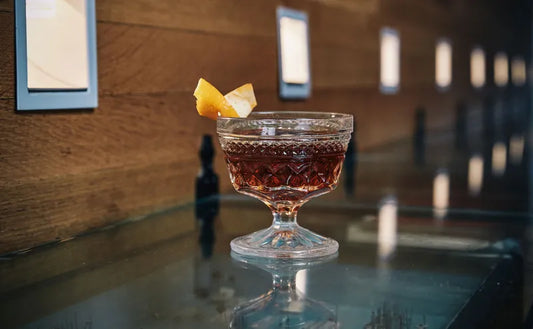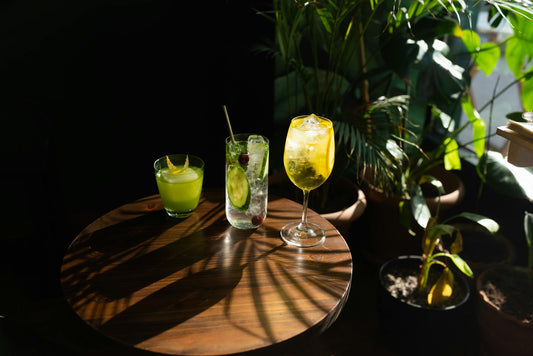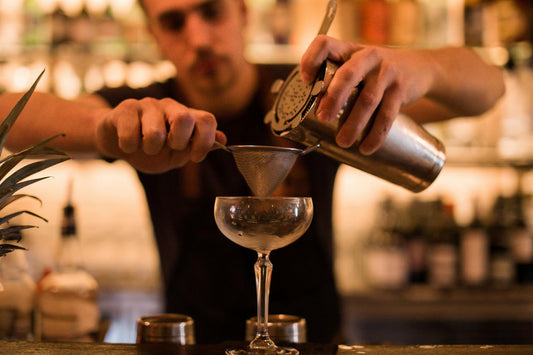Grapefruit Daiquiri: Refreshing Almost Non-Alcoholic Cocktail
SWEET to SOUR
(1-10)
STRENGTH
(1-10)
CALORIES
STANDARD
DRINKS
Note: these values are approximate and may vary dependent on the ingredients and brands you use.
More information...
The Grapefruit Daiquiri (Almost non-alcoholic) is a refreshing twist on the classic daiquiri, designed for those who want to enjoy a delightful cocktail experience without the significant effects of alcohol. This drink is perfect for social gatherings, brunches, or simply as a refreshing treat on a warm day. With its vibrant pink hue and zesty flavor profile, it captures the essence of summer in a glass.
The ingredients for this cocktail are simple yet effective. It starts with 60 ml of freshly squeezed pink grapefruit juice, which provides a tart and slightly sweet base. Grapefruit juice is not only delicious but also packed with vitamins and antioxidants, making this drink a healthier choice. The addition of 30 ml of freshly squeezed lime juice enhances the citrusy notes, adding a sharpness that balances the sweetness of the grapefruit. Lime juice is a staple in many cocktails, known for its ability to brighten flavors and add a refreshing kick.
To sweeten the drink, 15 ml of rich sugar syrup is used. This syrup, made from a 2:1 ratio of sugar to water, ensures that the sweetness is pronounced without being overwhelming. The rich syrup dissolves easily, allowing for a smooth texture that complements the other ingredients. Finally, two dashes of Angostura Aromatic Bitters are added, which introduce a complex layer of flavor. Bitters are often used in cocktails to add depth and balance, and in this case, they enhance the overall profile of the drink, making it more sophisticated.
The preparation method is straightforward, making it accessible for both novice and experienced mixologists. First, an Old-Fashioned glass is selected and pre-chilled to ensure the drink remains cool and refreshing. A lime wedge is prepared as a garnish, adding a pop of color and a hint of additional citrus aroma. The ingredients are then shaken with ice, which not only chills the mixture but also dilutes it slightly, creating a well-rounded flavor. After shaking, the cocktail is fine strained into the chilled glass, ensuring a smooth sip without any pulp or ice shards. The final touch is the garnish of a lime wedge, which not only looks appealing but also invites the drinker to enjoy the zesty aroma.
With an alcohol content of just 0.19% alc./vol., this Grapefruit Daiquiri is almost non-alcoholic, making it an excellent choice for those who are looking to reduce their alcohol intake or for designated drivers. At only 90 calories, it is a guilt-free indulgence that allows you to enjoy the flavors of a cocktail without the heavy caloric load often associated with alcoholic beverages.
The taste of the Grapefruit Daiquiri is a delightful balance between sweet and sour, with the grapefruit providing a refreshing tartness that is perfectly complemented by the sweetness of the sugar syrup. The bitters add a subtle complexity that elevates the drink beyond a simple juice mix. This cocktail is not just a drink; it’s an experience that invites you to savor the moment, whether you’re lounging by the pool or enjoying a sunset with friends. The Grapefruit Daiquiri (Almost non-alcoholic) is a testament to the fact that you can enjoy a sophisticated cocktail experience without the need for significant alcohol.



